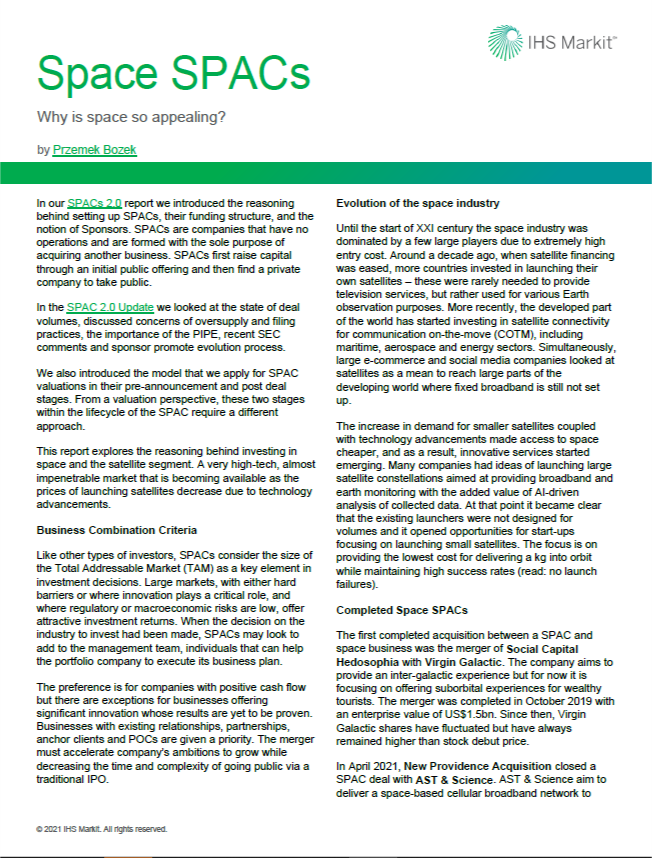Featured Topics
Featured Products
Events
S&P Global Offerings
Featured Topics
Featured Products
Events
S&P Global Offerings
Featured Topics
Featured Products
Events
S&P Global Offerings
Featured Topics
Featured Products
Events
Financial and Market intelligence
Fundamental & Alternative Datasets
Government & Defense
Banking & Capital Markets
Economy & Finance
Energy Transition & Sustainability
Technology & Innovation
Podcasts & Newsletters
Financial and Market intelligence
Fundamental & Alternative Datasets
Government & Defense
Banking & Capital Markets
Economy & Finance
Energy Transition & Sustainability
Technology & Innovation
Podcasts & Newsletters
BLOG — May 06, 2021
In our SPACs 2.0 report we introduced the reasoning behind setting up SPACs, their funding structure, and the notion of Sponsors. SPACs are companies that have no operations and are formed with the sole purpose of acquiring another business. SPACs first raise capital through an initial public offering and then find a private company to take public.
In the SPAC 2.0 Update we looked at the state of deal volumes, discussed concerns of oversupply and filing practices, the importance of the PIPE, recent SEC comments and sponsor promote evolution process.
We also introduced the model that we apply for SPAC valuations in their pre-announcement and post deal stages. From a valuation perspective, these two stages within the lifecycle of the SPAC require a different approach.
This report explores the reasoning behind investing in space and the satellite segment. A very high-tech, almost impenetrable market that is becoming available as the prices of launching satellites decrease due to technology advancements.
Posted 06 May 2021 by Przemek Bozek, Advisory & Consulting, Private Equity & Debt Services, S&P Global Market Intelligence
S&P Global provides industry-leading data, software and technology platforms and managed services to tackle some of the most difficult challenges in financial markets. We help our customers better understand complicated markets, reduce risk, operate more efficiently and comply with financial regulation.
This article was published by S&P Global Market Intelligence and not by S&P Global Ratings, which is a separately managed division of S&P Global.

